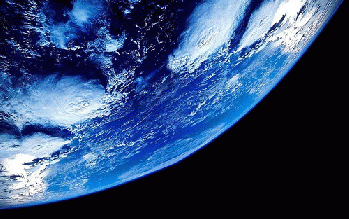Would you be interested in hearing about a way of understanding our humanity, and the story of our species on this planet, that
- " Explains much about the overall trajectory of human history; and, in particular,
" Provides a basic insight into why our history has been as tormented and destructive as it has been;
" Presents a useful and highly plausible way of comprehending the nature, source, and modus operandi of what has traditionally been called "evil";
" Shows persuasively that human history should not be seen as human nature writ large, that the ugliness we see in history is not evidence of an ugliness inherent in humanity; and thus, with the case it makes, that we are likely far better creatures than most of us believe,
" Enables us to envision much brighter possibilities for the human future than are current in most contemporary thinking;
" (And most immediately, explains how a destructive force has gained great power in recent times in the American political system, leading to the election of a man whose rise to the presidency would previously have been unthinkable);
--a way of understanding that does these things in a secular framework that builds logically upon some of the best available knowledge:
- ï � � what evolution tells us about the development of life on earth,
ï � � what history and anthropology tell us about human societies, and
ï � � what psychology tells us about how human beings get shaped by their experience?
If your answer to that question is yes, then you are one of the people for whom I am writing this series. For my aim in this series, which begins with this piece, is to deliver to you that "way of understanding," that theory, that human story.
**********************
If you are interested in that kind of Big Picture way of understanding, you are also, I believe, in a minority in the climate of thought of our times.
Consider: what kind of "story" do we as a culture today tell about ourselves? What sense do we make of the forces or processes that over long stretches of time have borne us forth to be what we are and where we are -- as a society, as a civilization, as a species -- today?
For most people in contemporary society -- at least in its secular components--there's no real story at all. Just "one damned thing after another."
It is not just the large component of less educated or less intellectually motivated people that is characterized by this absence of a sense-making story of our kind. Even among the more intellectually inclined, the interest in Big Picture insights is much reduced from where it was, say, a half century ago.
Back in the 1960s -- the decade of my own main intellectual formation -- the explanatory systems of Freud and Marx provided frameworks through which many thinkers perceived the human story.
These frameworks have since lost much of their prestige and authority. But my point here is not to discuss those ideas, but rather to observe these two striking aspects of the intellectual environment of our times:
" While those Big Picture ideas have receded, nothing much comparable has arisen to take their place.
We have accounts that make connections (specific links, like how the Versailles Treaty at the end of World War I planted the seeds of World War II), and some that delineate larger patterns (like the rise of the city states, or the Industrial Revolution).
And we have the essential idea of biological evolution, and the basic perspective of evolutionary psychology that derives from it.
But in the contemporary intellectual world, there has arisen no account that can illuminate the meaning of the overall shape of the human story.
" Even though the absence of any overarching ideas to make sense of the human story leaves an important void in our understanding, people lacking such a story are nonetheless not looking for something to fill that void.
Next Page 1 | 2 | 3 | 4 | 5 | 6 | 7 | 8
(Note: You can view every article as one long page if you sign up as an Advocate Member, or higher).






